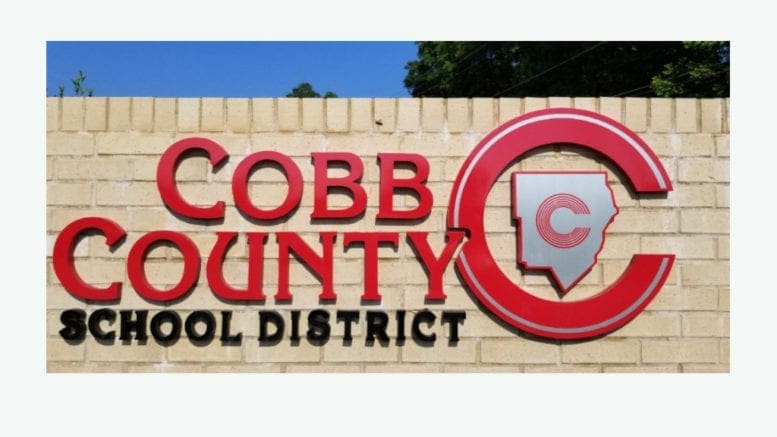By Rebecca Gaunt
Voting rights groups filed a federal lawsuit challenging the Cobb County school board redistricting map, alleging discrimination against communities of color, particularly Black and Hispanic voters, by “packing” them into a small number of districts to dilute their voting power.
According to the lawsuit, the school board and Georgia legislators used demographic information to concentrate voters of color into Districts 2, 3, and 6 and “whitewash the four remaining districts,” a violation of the Fourteenth and Fifteenth Amendments.
Dr. Jaha Howard, Leroy Tre’ Hutchins, and Charisse Davis hold those posts under the old lines. Neither Davis nor Howard are seeking re-election this year. Hutchins isn’t up for re-election until 2024.
“Cobb County has rapidly grown more diverse over the last decade. But instead of celebrating this diversity, the Cobb County School Board has weaponized race to draw a map that purposely diminishes the voices of Black and Latinx voters,” ACLU attorney Rahul Garabadu said in a press release from the SPLC.
The Southern Poverty Law Center (SPLC), Southern Coalition for Social Justice (SCSJ), ACLU of Georgia, Lawyers’ Committee for Civil Rights Under Law, and Schulte, Roth & Zabel LLP filed the litigation in the U.S. District Court in Northern Georgia on behalf of the New Georgia Project Action Fund, the League of Women Voters of Marietta-Cobb, the Georgia Coalition for the People’s Agenda, Georgia NAACP, the Georgia Association of Latino Elected Officials, Dr. Jillian Ford, Karen Finn, Hylah Daly and Jenne Dulcio.
The Cobb County Board of Elections and Registration and Director Janine Eveler are named as defendants.
From the press release:
In Georgia, county-level redistricting maps must be approved by the General Assembly through the legislative process. For these school board maps, the legislature bypassed local legislation rules, which would have required prior negotiation and approval by the legislative members representing Cobb and instead moved the proposed school board map through the general legislation process. This allowed them to bring the bills before committees with white, conservative majorities and onto the floor of both chambers, controlled by the conservative majority.
Creation of the maps was a contentious issue for the board, with Democrats Howard, Hutchins and Davis supporting the map proposed by Rep. Erick Allen that was similar to the original lines. The four Republicans proposed a map drawn by attorneys at Taylor English Decisions. The decision to hire the firm, headed by former state Rep. Earl Ehrhart, without seeking bids, was also controversial.
Ehrhart’s wife, state Rep. Ginny Ehrhart (R–West Cobb), sponsored the Republicans’ map in the legislature.
“For too long, the white majority board members in Cobb County have ignored the experiences and voices of Black parents, students, and community members and denied Black students like my son appropriate public education and opportunities for him to grow and thrive.” said Karen Finn, mother of a student attending Cobb County schools, in the press release. “We need a school board that actually represents Cobb County, acts in the best interests of Cobb County students, and gives fair representation to communities of color.”
The lawsuit cites several conflicts that have occurred on the board, including changing the rule to get a discussion item on the agenda from three members to four after the demographics changed from a 6-1 white Republican majority. It also mentions ending the practice of allowing board member comments, dissolving a committee to rename Joseph Wheeler High School, which is named for a Confederate general, the refusal of the majority to add COVID safety to the agenda, racist comments by board Vice Chair David Banks, and data that shows Black and disabled students are disproportionately referred to law enforcement.
Read the lawsuit in full here.


Speaking of the SPLC, how is their lawsuit against CCSD for dropping the mask mandate going? How much of the taxpayers money do these people get to waste by making the district defend against their frivolous lawsuits?